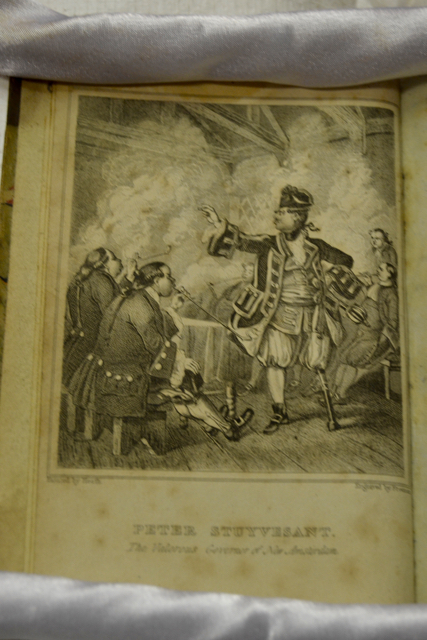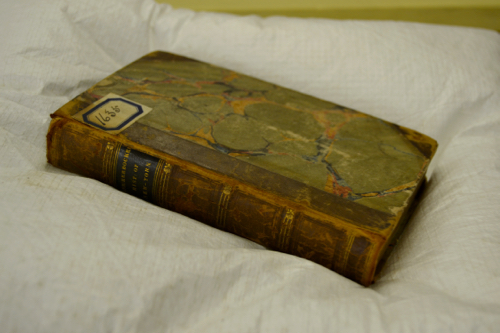
Author
Diedrich Knickerbocker (Washington Irving)
Title
A History of New York: From the Beginning of the World to the End of the Dutch Dynasty
Published
London: Bumpus, 1828
Location
817.2 FM1635

What is this book about?
A History of New York is a satire – on early nineteenth-century politics and the perceived self-importance of New York’s upper class and politicians. Written in the first person, the book is a ‘cosmogony’ – a coming-of-existence story of the city of New York. The book often changes facts, but does contain a number of Dutch-American legends, as well as topics such as the ‘discovery’ of American, the voyage of Henry Hudson, the founding of New Amsterdam, the reign of Governor Wouter van Twiller, hostilities with the British. Part of its satire is directed towards particular persons – its section on William the Testy (Willem Kieft), for example, can be read as a satire of Thomas Jefferson. The History finishes when New Amsterdam falls to the British in 1664.
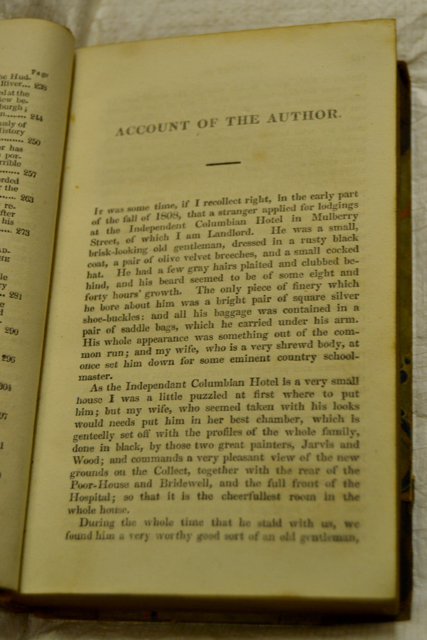
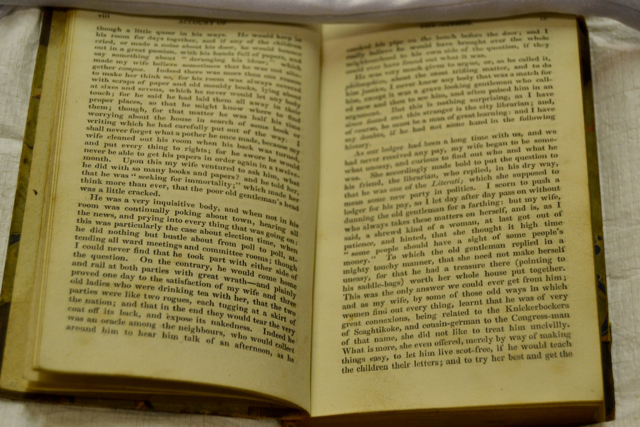
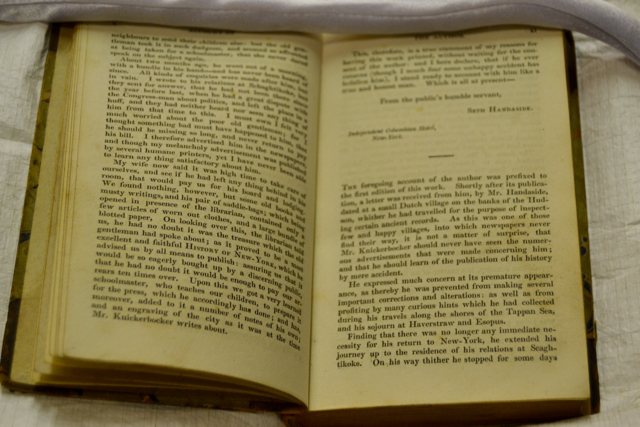
Why does this book matter?
Diedrich Knickerbocker is a pseudonym – the book’s author is actually Washington Irving, best remembered perhaps for his short stories, such as The Legend of Sleepy Hollow. This is Irving’s first book, and it is interesting not just for its content but also for its publication history. Before the book was released Irving planted two advertisements in New York newspapers requesting information on Diedrich Knickerbocker, a purported Dutch historian who had gone missing from his hotel room. In the advertisement Irving also promised that he would release Knickerbocker’s manuscript if the historian wasn’t to be found. Of course, all of this was a hoax – Knickerbocker never existed! The public, however, became very interested in this case, and when the book was published on 6 December 1809, it met with immediate popular success.
You’ll find this book worth reading if you enjoy satire, or if you if you are interested in American history. This is also a ‘must-read’ for people interested in publication history, and in literary hoaxes.
